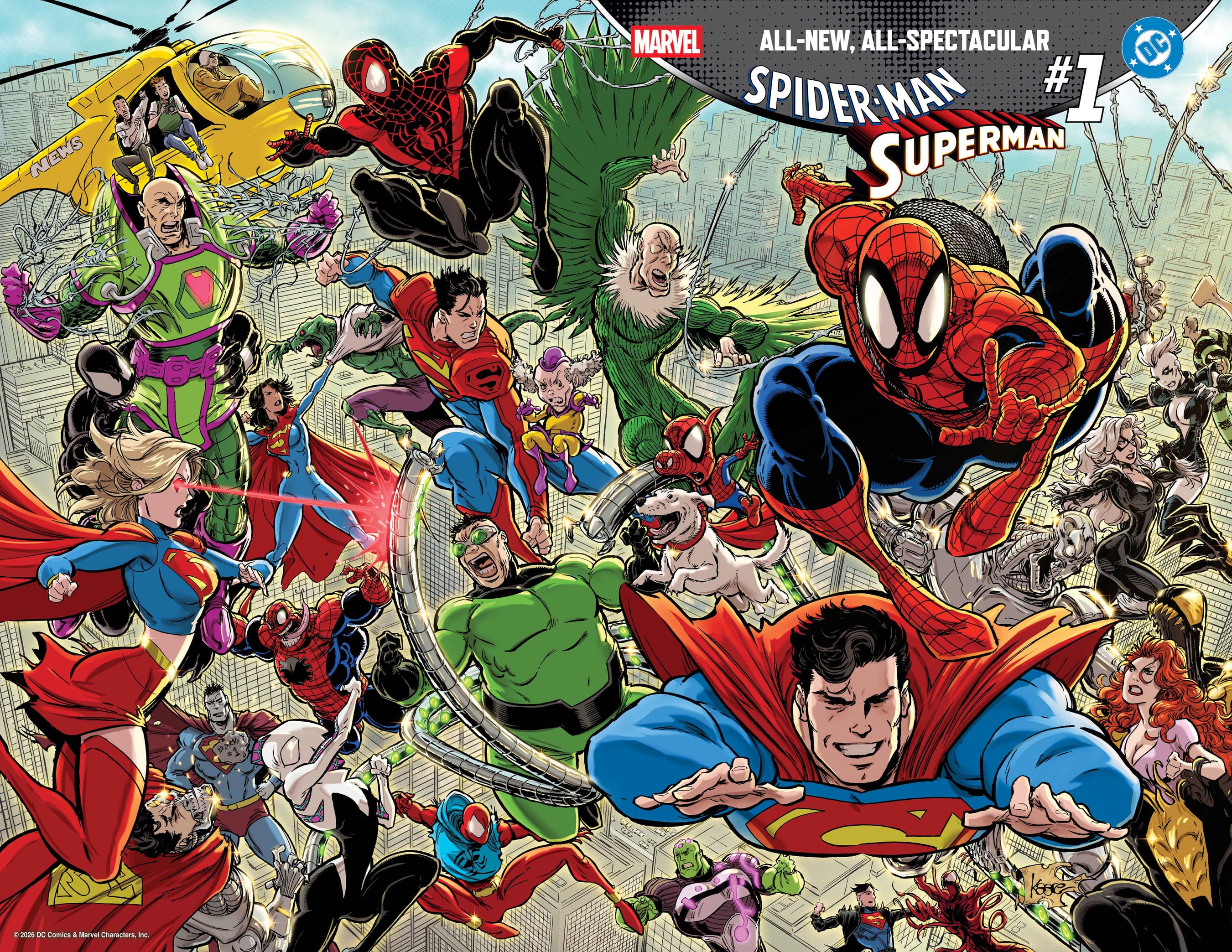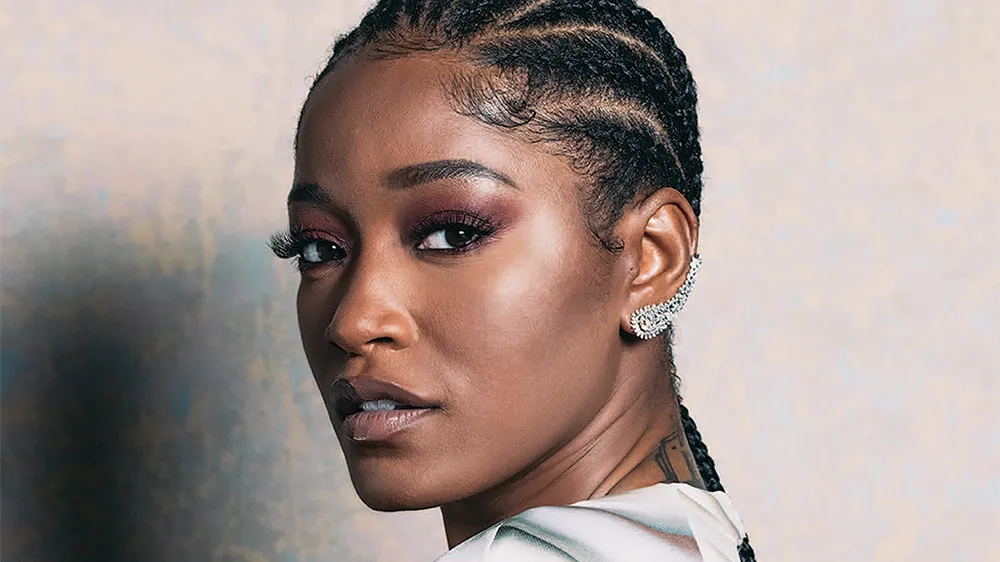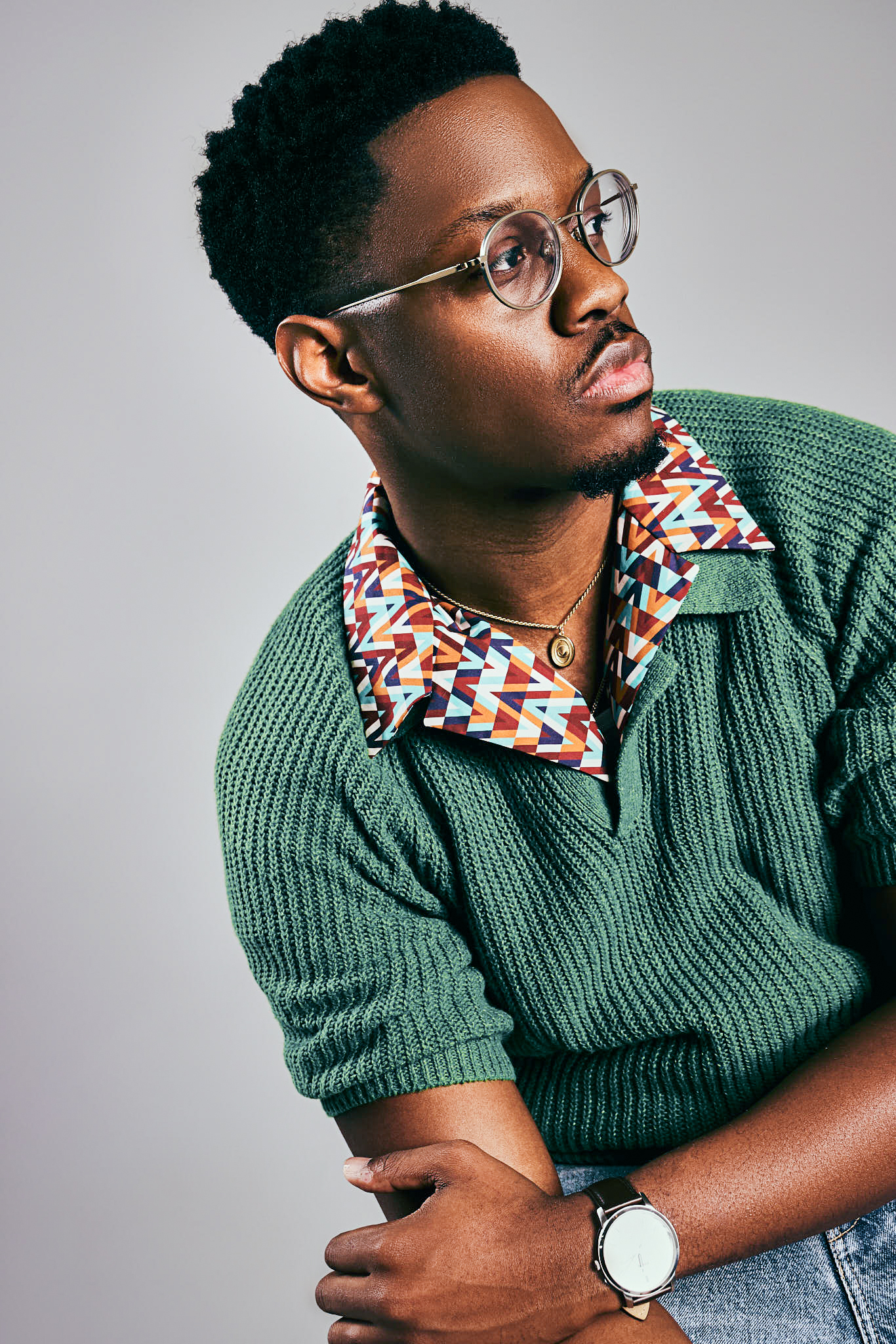
Owning the Booth: Gabe Kunda Talks Blade, Marvel, and Building a Voice Acting Legacy
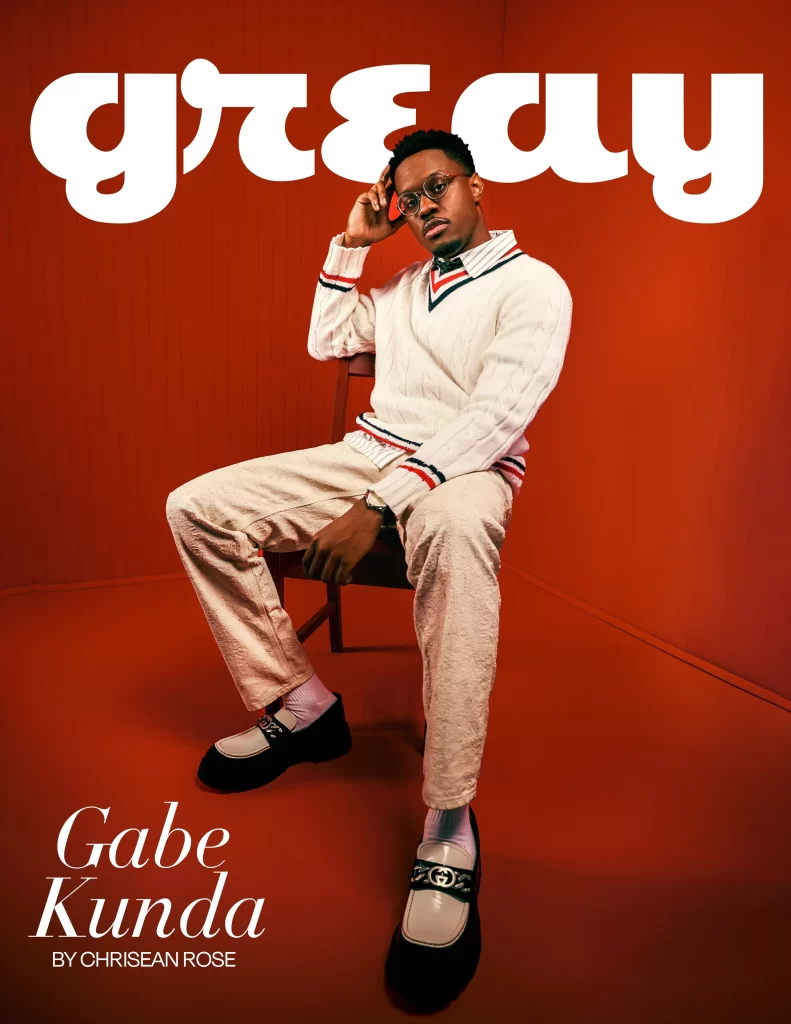
By Kyra Greene
In the ever-expanding Marvel universe, few characters carry the kind of weight, history, and cultural imprint as Blade, the half-human, half-vampire hunter who carved his way into pop culture decades ago. Now, as Marvel prepares to reintroduce the Daywalker to a new generation in Marvel Rivals, it’s Gabe Kunda’s voice that fans will hear breathing life into the trench-coat-wearing legend.
For Kunda, this role represents more than just another credit in an already impressive portfolio—it’s a moment where passion, preparation, and legacy collide. Fans may know him as Newcastle in Apex Legends, KAY/O in Valorant, or from his iconic bass vocals with Kings Return, but stepping into Blade’s world is an entirely different challenge. With decades of fan expectations, cinematic history, and an entire subculture attached to the character, Kunda approached the role with both reverence and originality—honoring the source material while carving out his own space within it.
Across anime, video games, trailers, and music, Kunda has built a career defined by range and versatility. But with Blade, the stakes feel higher, the responsibility heavier. “You’re stepping into a role that has shaped generations,” he shares in our conversation. “Blade isn’t just a character—he’s a movement.”
In this exclusive Greay Magazine Q&A, Kunda opens up about his process, his inspirations, and the creative instincts that allow him to balance legacy with innovation—proving why his voice is one of the most commanding in the industry today.
1. Blade is a character with decades of history and an intense fan following. How did you approach stepping into his shoes—well, his trench coat—for Marvel Rivals?
I’ve been familiar with Blade for years—especially through the movies—so I already had a personal connection to the character. When I booked the role, I did a deep dive into some of the comics and his origins, but I was careful not to over-research. I didn’t want my performance to feel like an impersonation; I wanted it to be my take while still honoring the legacy. So I took in just enough to have a solid foundation, then let my instincts and the script guide me. That balance let me step into his world without losing my own voice in the process.
2. The Daywalker has this perfect mix of cool, menace, and humanity. How did you find the right vocal balance to make him feel authentic?
It’s tempting to lean fully into the brooding, menacing side of Blade—and there’s definitely a place for that—but I think what makes him compelling is the humanity underneath. For me, it’s about finding those small moments of truth. If the line gives me a chance to show a flicker of vulnerability, or a moment of dry wit, I lean into it. Not every beat has to be dark and angry; in fact, it’s the shifts between menace and humanity that make him real. As an actor, I want to be able to pivot quickly—one moment he’s ice-cold and intimidating, the next he’s showing a flash of empathy—because that’s how real people operate.
3. This isn’t your first time in Marvel’s orbit—you were part of theatrical campaigns for Fantastic Four: First Steps. How does this new role compare to your past Marvel experiences?
Working on Marvel theatrical campaigns is always exciting because you’re essentially the voice ushering millions of people into the theater. You’re part of the event. But this—stepping into Blade—feels different. The trailers are like being on the sidelines of the game; voicing Blade is being in the game. There’s more personal ownership, more responsibility. With the campaigns, I’m amplifying the hype for a story someone else is telling. Here, I’m inside the story, helping bring it to life. It’s thrilling in a completely different way.
4. Blade often walks the line between hero and monster. Did you pull inspiration from any specific performances or personal moments to capture that tension?
Wesley Snipes is the blueprint—his Blade is iconic. Michael Jai White also had a fantastic take on the character. I tried to find a balance between the two while still making the role my own. Wesley, in particular, really nailed that fine line between controlled danger and charisma, and I wanted to channel that balance. I’m grateful that those performances exist because they set such a strong foundation for me to build on.
5. You’ve voiced in some of gaming’s biggest titles, from Apex Legends’ Newcastle to Valorant’s KAY/O. What’s the biggest difference between voicing a grounded human character and a more stylized, larger-than-life hero?
With a character like Blade, people already have expectations—sometimes decades of them. There’s pressure to match, if not exceed, what they imagine, which is a tall order. Compare that to someone like Newcastle or KAY/O, where audiences meet them for the first time when the game drops—there’s more freedom to define them from scratch. Blade comes with a legacy. You’re stepping into a role that has resurrected movie studios, inspired generations of fans, and shaped pop culture. That’s an entirely different weight to carry into the booth.
6. With credits spanning anime, video games, and trailers, you’ve mastered switching between different performance styles. How do you adjust your process depending on the medium?
It all comes down to acting fundamentals. It’s not just about having a “different voice” for each medium—it’s about intention. I might go from an intense, cinematic movie trailer to a grounded anime scene to an explosive video game session all in the same day. It’s like switching gears in a car—you have to know the terrain before you shift. The trick is really listening to the director, locking into the tone of the project, and trusting your instincts. That muscle gets stronger the more you do it, but it’s still a skill you have to consciously maintain.
7. In anime, you’ve played everything from Rock Lock in My Hero Academia to King in One Piece. How does your approach change when you’re joining a beloved, long-running series versus voicing an original character?
Joining a long-running series means stepping into an existing world with established rules and a passionate fanbase. There’s a responsibility to honor what’s already there while still finding ways to make your version of the character distinct. With an original character, you’re helping create the blueprint from scratch. In both cases, it’s about authenticity—but with legacy roles, you’re also becoming part of a much bigger story that’s been unfolding long before you showed up.
8. Many fans first discover your voice in intense action scenes, but you’ve also voiced emotional, quiet moments. How do you bring subtlety to a performance when the medium is so heightened?
Subtlety comes from understanding the “why” behind a line. Even in heightened worlds, those quiet beats are where the audience connects on a human level. I rely a lot on the director to give me context—where’s the character emotionally, what just happened, what’s at stake? Once I have that, I can strip away the volume and focus on the truth of the moment. Sometimes the most powerful thing you can do in a heightened setting is pull back and let the silence carry weight.
9. Your parents were born in the Democratic Republic of Congo. How has your heritage and your family’s journey influenced your creative voice and work ethic?
My parents instilled in me the idea that you only get one shot to make a great impression. Coming from the DRC, they understood the value of hard work, resilience, and integrity. Even though this is a creative field, I approach it with the seriousness of someone who knows their work will be remembered. My parents taught me to be dependable, respectful, and easy to work with—and those values have carried me through every session, no matter how big or small the project.
10. As a bass vocalist with Kings Return, you bring a unique musicality to your performances. How has singing shaped your vocal control as a voice actor?
Singing bass has trained me to think about the voice in layers—pitch, tone, dynamics, and how they work together to create an emotional impact. I know how to modulate, when to push, and when to hold back. Being the foundation of a group vocally is a lot like anchoring a character—it requires consistency, presence, and the ability to support the performance without overpowering it. That musical sensibility definitely finds its way into my voice acting.
11. Through your Light Motif Foundation, you’ve championed arts education. How has that work influenced your perspective on creativity and opportunity in the industry?
Light Motif exists because I believe everyone deserves the chance to explore their creative potential. Growing up, a lot of people are told that the arts aren’t a “real” career, and they end up steering away from it before they even try. I want to challenge that mindset. Creativity has the power to inspire, to heal, and yes—to provide a living. Seeing young people light up when they realize they canpursue this path has deepened my own gratitude for the opportunities I’ve had. It’s a reminder to pay it forward and keep the door open for the next generation.
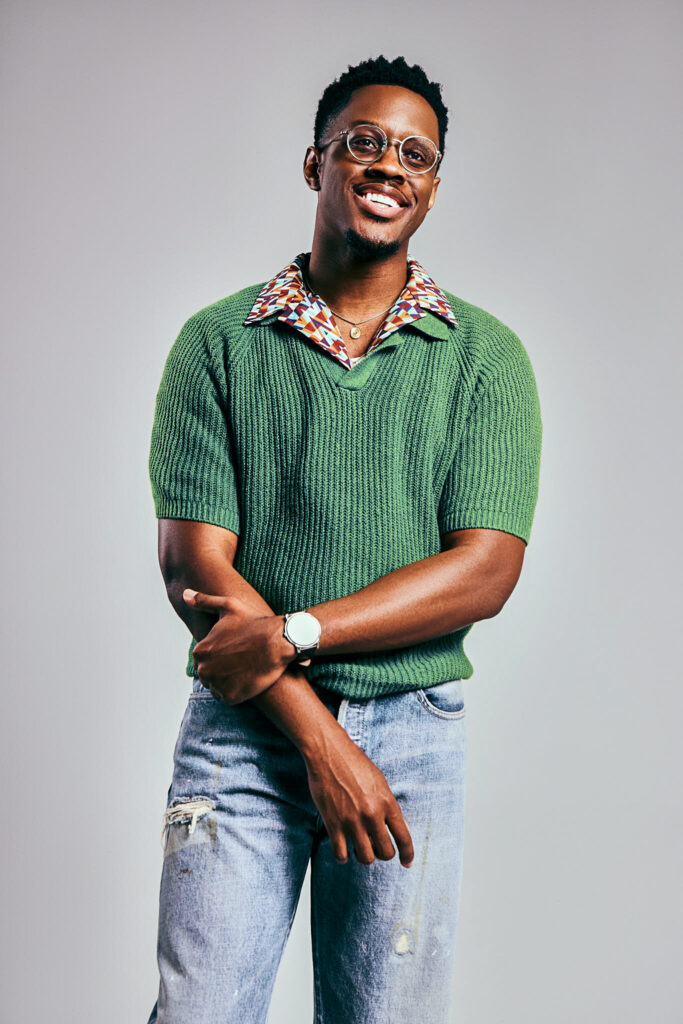
12. You’ve had roles in so many fan-favorite franchises—anime, games, Marvel, and beyond. When you look back years from now, what kind of legacy do you hope to leave in the voice acting world?
I want my legacy to be that I never allowed myself to be boxed in. Too often, actors are told to stay in one lane, but I’ve always believed in exploring every shade of what I can do. Just like in real life, we have different sides depending on who we’re with and what we’re experiencing. Those layers are what make a performance rich and irreplaceable. If years from now people look at my body of work and see versatility, depth, and a willingness to take risks—that’s the kind of legacy I want to leave.
After speaking with Gabe Kunda, one thing becomes undeniably clear: his journey is just as layered as the characters he portrays. From the immersive battlefields of Apex Legends to the heart-pounding cinematic worlds of Marvel, Kunda continues to redefine what it means to be a voice actor in today’s entertainment landscape. But beyond the titles and franchises, there’s an intentionality to his work—a deep understanding that voice acting is about humanity as much as performance.
With Marvel Rivals, Kunda steps into Blade’s trench coat not to mimic what’s come before, but to expand the character’s dimensions. He brings menace, control, and vulnerability in equal measure, breathing life into a figure who has inspired generations. It’s a moment that feels both inevitable and groundbreaking—the perfect convergence of talent, timing, and storytelling.
As the world gears up to experience his take on the Daywalker, Kunda isn’t just shaping the future of Blade—he’s shaping the future of voice acting itself. And if his trajectory so far is any indication, this is only the beginning of a legacy built on versatility, fearlessness, and a relentless drive to elevate every role he touches.
Photos by Chrisean Rose @chriseanrose





